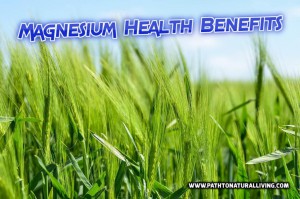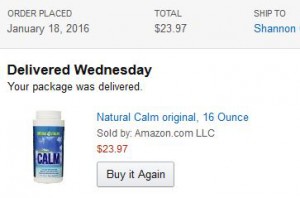
Calcium gets all the attention when it comes to bone health and preventing osteoporosis. Did you know that magnesium also plays a critical role in bone health and calcium, magnesium, and Vitamin D should be taken together to get proper absorption?
What is Magnesium?
Magnesium is a mineral that naturally occurs in our bodies in fairly large quantities. It is estimated that at least 50% of magnesium in our body is in our bones.
Why Do I Need It?
Most Americans need to supplement their magnesium intake as they don’t get enough from the foods they consume. Magnesium is responsible for the proper function of 300 chemical reactions in our body to keep things in tip-top shape. Here are some of the highlights:
- Proper bone growth, development and maintenance (think preventing osteoporosis). It is more than calcium and vitamin D for bone health! Let magnesium join the party for strong bone health – your bones will thank you.
- Magnesium helps keep stomach acid levels in check and keeps things moving along in your digestive track.
- It is a vital ingredient for your nerves and muscles to function.
- Magnesium is required for energy production (athletes use it to enhance their performance)
There are a wide variety of symptoms if you are deficient in magnesium, which most Americans are, and women are more likely to be deficient.
What are the Possible Health Benefits?
- A natural and gentle laxative

- Alleviate symptoms of acid reflux
- Lessen menstrual cramps and PMS Symptoms
- Prevent migraine headaches (especially in women around the time of their period)
- Prevention of osteoporosis when taken in conjunction with Calcium and Vitamin D
- Natural sedative to ease your anxiety and help you sleep better if taken before bed (some more tips on great sleep)
- Keep you calm and has been helpful to kids with ADHD
- Leg and muscle cramps – it is a good sign you are deficient if you get these
- Increase serotonin levels to boost the mood of those with depression
- Protect you against type 2 diabetes
- Improve muscle strength for those with fibromyalgia and cystic fibrosis.
- Help with irregular heartbeat and maintain good heart health
Foods High in Magnesium
As a general rule, foods high in magnesium are dark green veggies and most foods that are high in fiber. For a full list, check out the National Institutes of Health Website. I have included a list of the foods high in magnesium. Foods at the top of the list have higher concentrations. Many processed foods are also fortified with magnesium, but natural sources are always my first choice.
- Nuts (almonds, cashews, peanuts)

- Spinach
- Black beans
- Whole wheat bread
- Avocado
- Baked potato with the skin on
- Brown Rice
- Oatmeal
- Kidney beans
- Banana
- Salmon
- Milk
- Raisins
- Chicken Breast
- Ground Beef
How Should I Take It?
There are many magnesium supplements out there in pill form. I prefer a magnesium powder called Calms that dissolves in water. I feel my body absorbs it better. The taste is slightly salty depending upon how much you take (I get the unflavored version).
To properly activate the powder magnesium, you must dissolve it in hot water. It will fizz up like a science experiment (my kids love watching it). Pour the water in slowly so you don’t have it all over your counter.
Once it has stopped fizzing it is ready to enjoy once it is cool enough. I drink it straight, but I give it to my kids with some OJ and they rarely notice.
Epson Salts
Epson salt is another great source of magnesium. You can soak your feet in water with Epson salts or take a bath with them. Since your skin is your largest organ, it absorbs quite a bit of magnesium in the bath. A nice bath with Epson salts will leave you super relaxed – and boost your magnesium levels naturally.
Magnesium Lotion
I make a magnesium lotion and use it topically. Rub it onto the bottom of your feet before bed – it will help you sleep soundly and soften your feet at the same time. Rub the magnesium lotion on your legs to help alleviate muscle cramps – I have a friend that always has a jar of magnesium lotion handy for this reason. It really works wonders! Rub the magnesium lotion on your stomach to help with digestion and ease constipation.
If you’ve made lotion before – you can use your regular recipe and substitute magnesium water for the regular water. I use these magnesium chloride flakes. One word of caution – magnesium lotion stings so don’t get into your eyes or open cuts. Wash your hands thoroughly after applying the lotion.
Here is a thorough video on how to make magnesium water and magnesium lotion.
Are there any precautions?
There are a number of precautions. I have personally taken magnesium (Calms) throughout two of my pregnancies and used the magnesium lotion when I get muscle cramps while pregnant. So I believe it to be safe, but I’m also not on any medications other than a thyroid medication nor am I a doctor.
You should not take magnesium if you have kidney problems or bleeding disorders. Most of the precautions relate to complications with a prescription medication. Always consult your physician.
- Antibiotics
- High blood pressure medications
- Muscle relaxants
- Water pills
- Bisphoshonates
Check out WebMD for a full list.
What is your favorite food that is high in magnesium? Mine is almonds.
References:
https://ods.od.nih.gov/factsheets/Magnesium-HealthProfessional/

 Hi There! I'm Shannon - I help women regain their health from the inside out so they can lead healthy, happy lives - full of energy and effortlessly maintain an ideal weight.
Hi There! I'm Shannon - I help women regain their health from the inside out so they can lead healthy, happy lives - full of energy and effortlessly maintain an ideal weight. 
